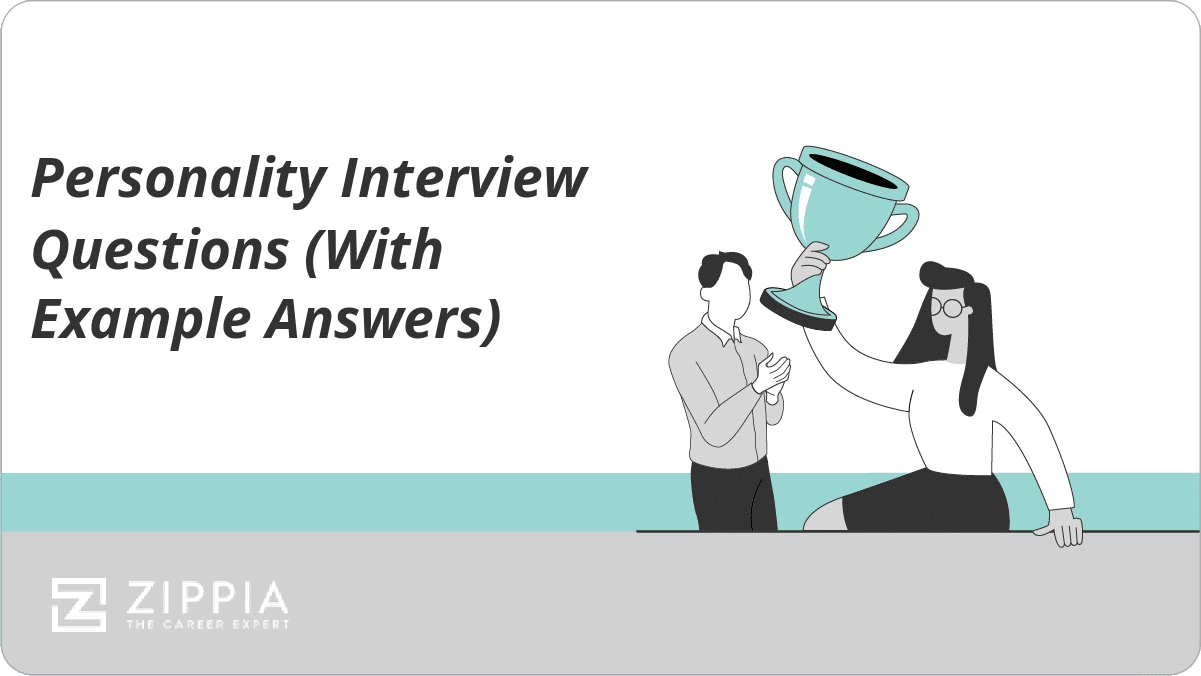When you’re in a nursing interview, you’ll hear the common question “Why do you want to be a nurse?”, so it’s essential to know how to answer it. Your answer should reflect on what it was that drew you to nursing and tell a story about it, such as the moment it was clear that you wanted to be a nurse.
Whether you want to be a pediatric nurse, emergency department nurse, or travel nurse, we’ll go over how to answer “Why did you choose nursing as a career?”, why interviewers ask this question, as well as some common mistakes to avoid.
Key Takeaways:
-
Try to think of a story or a moment that made it clear that a nursing career was right for you.
-
Interviewers ask “Why do you want to become a nurse?” so you can highlight your passion for nursing and what got you interested in the field.
-
Avoid saying anything negative because it can often be a red flag for interviewers.

- How to answer “Why do you want to be a nurse?”
- Example answers to “Why do you want to be a nurse?”
- Why interviewers ask this interview question
- Common mistakes to avoid when answering
- Interview tips for answering this question
- Possible follow-up questions:
- Nurse career path FAQ
- Final thoughts
- References
- Sign Up For More Advice and Jobs
How to answer “Why do you want to be a nurse?”
To answer “Why do you want to be a nurse?” you should first ask yourself questions as to why you want to be a nurse, start at the root, and tell your interviewer a story. Below is a more detailed list of how to answer this interview question.
-
As yourself questions. Before the interview, ask yourself, putting money and career goals aside, why do YOU want to be a nurse? Consider the following questions to better understand your reasoning:
-
Do you want to help people?
-
Does the medical field excite you?
-
Do you have certain skills, such as communication or concentration under duress, that naturally fit the position?
-
Do you thrive when you get to build relationships with people?
-
Do you love both science and working with people?
Focus on these aspects of yourself when you are asked why you are choosing nursing as a career.
-
-
Start at the root. If you’ve wanted to be a nurse since you were a kid, start there. If you got into medicine thanks to an impactful college professor, make that your starting point.
The idea is that you don’t want to go back unnecessarily far, but you also don’t want to start in the middle. Not everyone can pinpoint an exact moment (and that’s fine) but try to reflect on what it was that drew you to nursing.
-
Tell a story. Most interviewers prefer narratives over bullet point facts — especially with a personal question like this. Don’t feel like you have to make up some great tale about how a nurse saved the day when you were a child, but bring in real moments when it became clear that nursing was the career for you.
-
Talk about people and experiences. Nursing is all about building relationships, so your answer should touch on your empathy and ability to form bonds with the people you work with and serve. In this way, your answer will show that you want to be a nurse because you truly enjoy the process of nursing.
-
Bring it to the future. Close your answer with a nod to the future and what you’d like to accomplish in your brilliant new nursing career. Bringing your answer from the past to the future shows that you’re forward-thinking and determined enough to make your dreams a reality.
Example answers to “Why do you want to be a nurse?”
Below are example answers to “Why do you want to be a nurse?” for different scenarios such as pediatric or emergency room nursing. Remember to tailor your answers to your specific needs when you answer in your interview.
-
Pediatric nurse example answer
“I have wanted to get into nursing since I was very young. One of my earliest memories is of a nurse taking care of me when I had to go to the hospital for stitches. She was so kind and gentle with me that I didn’t even cry or panic. I remember leaving thinking that was the kind of person I wanted to be when I grew up. Ever since then, everything I have done has been working towards becoming a nurse.”
-
Emergency room nurse example answer
“When I was in college I took a course on basic first aid and found it super interesting. I started signing up for volunteer first aid positions and some of my fellow volunteers were nurses. I was curious about their job and the more I learned about what they did the more I found myself excited by the prospect of helping people in medical situations. I made friends with these nurses and they helped guide me through the application process.”
-
Travel nurse example answer
“Medicine is such an exciting field, and one of the biggest joys of nursing is that I’m always learning new things. I know people who dread getting their necessary CEUs every year, but for me, it’s a perk of the career.
“For instance, just last year I completed my certification from the Wilderness Medical Society and can now serve as medical staff on the Appalachian Trail. But from Diabetes for APRNs to Nursing for Infertility courses, I’m always able to maintain my passion for nursing through continuous discovery and wonder at the medical field.”
-
Critical care nurse example answer
“I believe in helping people, especially in times of extreme need. When I worked as an EMT I was always the one asked to facilitate information between any involved party. I want to expand this skill and I think nursing is a good fit for me. My interests and experience with medical professionals are good for this job.”
-
Nurse midwife example answer
“I want to be a nurse because I am deeply committed to providing compassionate healthcare to women during one of the most significant and transformative moments of their life. Being a nurse midwife will allow me to empower women by advocating their choices and preferences during childbirth.
“Being a nurse midwife will also allow me to make a positive impact on the lives of women and their families. I will be able to provide personalized care, emotional support, and educational resources to help ensure a smooth and empowering birthing experience for my patients.”
-
Oncology nurse example answer
“I want to be an oncology nurse because this field is driven by a profound desire to make a meaningful difference in the lives of those fighting cancer. I am committed to providing compassionate care to patients during their cancer journey.
“Working as an oncology nurse also has the opportunities to be part of cutting-edge research and advancements in cancer treatments. I want to be at the forefront of innovation and help contribute to the improvement of cancer care outcomes.”
Why interviewers ask this interview question
The interviewer will ask why you want to be a nurse to know how serious you are about the position. This isn’t a career to take lightly because there are many challenges.
Nursing is a profession with a prerequisite for assisting others in potentially high-stress environments. So by answering this question, you are given the opportunity to highlight not only your skills but more importantly, your passion for nursing and ability to keep cool under pressure.
Additionally, interviewers hope to learn why you got interested in the field in the first place. Telling a story about an impactful experience with a medical professional or about the sense of satisfaction you feel when helping a patient can help illustrate that you’re not only skillful but also have deep compassion for the people you’ll be working with.
Common mistakes to avoid when answering
You should avoid saying anything negative because it can be a red flag for the interviewer. Here are some other common mistakes you should avoid when answering:
-
Saying anything negative. A negative response will be a red flag for the interviewer. If you are one to complain or see the worse in a situation, this will make you a difficult coworker in an already difficult field.
-
Focusing on money or self-serving reasons. Even if the wages are an attractive feature of the profession, mentioning this as a reason will hurt you. The interviewer is looking for an answer that goes beyond your own needs.
-
Unrelated anecdotes. Don’t get caught up in telling stories about nursing that have nothing to do with you or the job. Remember to keep things relevant and concise.
Interview tips for answering this question
Your answer should be positive and you should use a personal experience to help you answer and tell a story. Here are some more tips to keep in mind when answering this question:
-
Be positive. Nothing will concern an interviewer more if you are cynical and negative in an interview where the job requires a strong sense of empathy and selflessness. This does not mean you can’t, nor should, ignore the challenges of the profession. If you can reframe these difficulties with a positive mindset and a “can do” attitude, you will strengthen your impact in the interview.
-
Be concise. A long-winded, rambling answer may give the impression that you have not considered the question ahead of time. That said, if you rush through your words, you may concern the interviewer as well. So, don’t be afraid to take breaths or have moments of silence, but choose your words carefully and effectively. Concise communication is a huge part of the nursing profession so here is an opportunity to highlight that skill.
-
Use personal experience. When answering the question “Why did you choose nursing as a career?” it can really help to bring in a personal touch to the response. This creates a unique answer that can help you stand out among other candidates. The personal experience may also reveal a moment of inspiration pointing towards why you chose nursing as a career.
-
Remember the job description. Use the skills required in the job description and apply them to yourself as you explain your interest in the field. Integrate them with care, you are not trying to restate your resume. Instead, consider how your skills have developed over time and how that relates to your interest in nursing. Remember, skills are developed through some kind of interest too.
-
Research the organization/department. Wherever you are applying to is going to have unique characteristics. Perhaps the organization focuses on low-income individuals or the elderly or intensive care patients. You may be able to bring this into your answer. Even if you do not, it is still good to give you context. By understanding where you’re applying to, you strengthen the explanation of why you are applying.
-
Practice your answer. Before the interview, practice this answer, preferably with someone else who can give you feedback such as a friend or family member. However, if you do not have that opportunity, practice in front of a mirror or, better yet, record yourself on your phone and listen back to what you said. In the end, you want to “train” for this question by giving yourself the opportunity to run through it a couple of times with the chance to tweak your response.
Possible follow-up questions:
After the question “Why did you choose a nursing career?” there will most likely be follow-up questions. Here are some examples of other common interview questions and some tips on how to answer them. This will help you prepare yourself for the direction the interview may take.
-
What do you think is most difficult about being a nurse? Why?
Be aware of certain challenges of nursing ahead of time. Do some research. The worst thing you can do for yourself is be caught off guard by this question.
-
How are you at handling stress?
Consider what techniques you use for reducing stress. It is going to be important to show your competency. Consider answering in a way that reveals you to be a team player and aware of the stresses of your coworkers as well.
-
What are your long-term career goals?
The interviewer is going to be gauging your seriousness in becoming a nurse. It is not a profession that you can just “try-out”, so give an answer that shows sincere consideration for a long-term medical profession. Note: This does not necessarily tie you strictly to nursing. Many managers and hospital administrators come from nursing backgrounds.
-
Why do you want to work here?
Many interviewers will want to hear about not only your passion for nursing as a career but also how your passions align with their organization.
Look up the mission and vision of the facility before your interview and talk about how that resonates with you, or give an example of how you’ve seen them in action and want to be a part of that.
-
What drove your interest in this specialty?
Not every nurse fits well in every nursing role, so your interviewers will likely ask you why you want this particular job.
Whether this is the specialty you’ve always worked in or you’re trying something new, structure your answer similarly to your answer to the “Why do you want to be a nurse?” question.
Nurse career path FAQ
-
Why would one want to be a nurse?
Many people want to be a nurse because it gives them an opportunity to help people in a meaningful way. Nurses not only perform specialized tasks that are vital to a person’s well-being, but they also get to emotionally support people who are going through an incredibly difficult time.
This can be as simple as being a calm, friendly presence or advocating for them with the rest of the medical staff, but it makes a huge impact on people’s lives.
In addition to this, many people choose to become nurses over another occupation that helps people because they love science and medicine or love the fast-paced, challenging work environment.
-
What is a good weakness to say in a nursing interview?
A good weakness to say in a nursing interview is a weakness that you’re actively working on. Whether your greatest weakness is that you’re too detailed with your paperwork or say yes to too many people and requests, always follow it up by explaining the steps you’re taking to overcome that weakness.
Hiring managers don’t expect you to be perfect, but they do expect you to be self-aware and take the initiative to minimize the impact of your weak spots.
-
What are the 6 C’s of nursing?
The 6 C’s of nursing are care, compassion, communication, courage, and commitment. These are principles taught to many nurses to help them learn how to give excellent care to patients.
They also help to set cultural expectations at medical facilities, since all of the nurses are upheld to this standard, no matter what their educational background or specialty.
-
What are some common nursing interview questions?
Some common nursing interview questions include:
-
What skills do you think are important for nurses to possess?
-
Describe your experience as a nurse and what you’ve learned from it.
-
How would you manage an uncooperative patient?
-
How well do you thrive in a fast-paced environment?
-
Final thoughts
There are so many nursing jobs out there and nurses are in high demand. You will want to know what you’re getting yourself into before you are asked at the interview what brings you to the field.
Knowledge is power, so knowing your response to “Why did you choose a nursing career?” is crucial for success. This is your moment to shine and show why you are the best candidate for the job.
Those who are able to answer with sincerity and empathy are the types of nurses all organizations will want. So get yourself ready and figure out ahead of time why you want to be a nurse.
References
-
Nightingale College – How To Ace Your Nursing Job Interview: Questions, Answers & Tips
-
The College of St. Scholastica – Why do you want to be a nurse? Students share their sentiments







